|
By Liberty Report Staff
Iran has been in neocon crosshairs for a very long time. U.S. Presidential Administrations come and go, Democrat and Republican, but the neocon script has remained the same. President Trump, voted in as an "outsider," has adopted the insider script. Today's speech in Saudi Arabia was crafted by Trump's neocon Senior Policy Advisor Stephen Miller. Miller's "long-time mentor" is David Horowitz.
Here are Horowitz's thoughts on Bush's invasion of Iraq:
“Baghdad is liberated,” he wrote for his FrontPage Magazine in April 2003. “In the days to come let us not forget that if it were not for one man, and one man alone—George Bush—the people of Iraq would not be celebrating in the streets and pulling down Saddam’s statues today. … We have entered the era of a new civil war between the forces of freedom and the powers of Islamo-fascist and communist darkness, and once again the left is clearly determined to take its stand on the other side. The good news is that America is back. Our military has performed superlatively. Our leadership has stood tall. We ourselves can celebrate over this and look confidently toward what lies ahead.”
Long story short...Trump may be a different face, but the neocon goal has remained the same.
Here's the relevant part of today's speech about Iran that neocon Stephen Miller wrote for Trump: But no discussion of stamping out this threat would be complete without mentioning the government that gives terrorists all three—safe harbor, financial backing, and the social standing needed for recruitment. It is a regime that is responsible for so much instability in the region. I am speaking of course of Iran.
Neocons are patient.
They always keep their eyes on the prize. Democrats....Republicans...."Outsiders".... Neocons write the script. Meanwhile, our lives, our safety, and (of course) our wallets are always at their beck and call.
By Chris Rossini
When non-president Donald Trump declared Saudi Arabia "the world's biggest funder of terrorism," and responsible for 9/11, one must presume that he understood the thoughts and opinions of the American people. Americans (even the mainstream media) have sympathy for the people of Saudi Arabia, specifically the persecuted women, gays, and Christians. The American people also sympathize with the suffering people of Yemen, who are being slaughtered en masse by the Saudis. Yet the U.S. government itself is practically bragging about arming the Saudis even further to the tune of $350 billion! The U.S. government and President Trump are painfully out of touch, and are hardly acting as representatives of the American people. This, unfortunately, is nothing new.
Let's look back to Aug. 22, 1980.
Ron Paul was speaking on the House floor. You'll notice the same disconnect between the sympathies of the American people vs. the U.S. federal government: Mr. Speaker, the striking factory and dock workers – whose leaders have now been arrested by the Communist regime in Poland – must be admired for their courage in defying the dictators who control their country. I am sure the sympathy of the American people is with the brave workers who are protesting the injustice and lack of freedom that have existed for 35 years in this so-called 'workers' paradise.'
What about dollars?
How did the Communist dictators make out with our taxpayer dollars? Ron Paul: ...from the end of World War II until 1978, the federal government loaned and gave the Communist regime in Poland $677 million. In 1979, our federal government granted the Communist regime in Poland an additional $500 million in loans and guarantees...
Why indeed...
Why did the U.S. subsidize Communist dictators then? Why do they arm Saudi dictators now?
By Liberty Report Staff
Long-time Trump confidant Roger Stone shared his thoughts today on the president's first offshore trip:
Pre-President Trump would've agreed with Stone.
But alas, for everyone keeping score at home: 1) Trump received Saudi Arabia's highest civilian honor, and 2) Signed a $350 billion arms deal with the state that (Pre-President) Trump called "the world's biggest funder of terrorism." Not a bad day for a group of non-Americans located 7,500 miles away. George Washington had the real "America First" foreign policy: "It is our true policy to steer clear of permanent alliance with any portion of the foreign world"
By Justin Raimondo
Donald Trump ran on a platform of improving relations with Russia: his victory was a mandate for that policy. Yet the real power in this country doesn’t reside within the ballot box, and that reality was brought home when the Justice Department appointed a “special counsel” to investigate “any links and/or coordination with the Russian government and individuals associated with the campaign of President Donald Trump.” After months of leaks coming from the intelligence agencies, who bitterly oppose the new policy, and a barrage of innuendo, smears, and character assassination in the media, the will of the people has been abrogated: the Deep State has the last word. The denizens of Langley, and the career spooks within our seventeen intelligence agencies, have exercised their veto power – a power that is not written into the Constitution, but is nevertheless very real. Their goal is to not only make détente with Russia impossible – and Trump’s goal of “getting along with Russia” will surely not be implemented now that the regime of the special counsel has trumped him – but also to overthrow a democratically elected chief executive, and perhaps prosecute him for “high crimes and misdemeanors” in the process. No matter what you think of Trump, this is an ominous development for all those who care about the future of our republic. Because the warning to our politicians could not be clearer: So you want to effect a fundamental change in US foreign policy? You dare to question the permanence of NATO? Let this be a lesson to you.
This goes way beyond the Trump administration: the potential targets of the investigation are potentially unlimited. Deputy Attorney General Ron Rosenstein’s letter to the Special Counsel – Bush era FBI Director Robert Mueller – also states that the counsel’s purview includes “any matters that arose directly from the investigation,” as well as “any other matters within the scope of 28 CFR 600.4 (a),” which refers to anyone who might conceivably be involved in obstructing the Special Counsel’s probe.
In short, Mueller has virtually unlimited power to expand his investigation, and, given the history of Special Counsels, you can be sure that this one will wander far afield and become a general probe into “Russian influence” on the election – a matter already taken up by at least two congressional committees. Any politician, especially one who supported Trump, who advocates peaceful and productive relations with Russia is a likely target. The War Party has already got Rep. Dana Rohrabacher (R-California) in its sights for his fearless questioning of the anti-Russian propaganda campaign. Furthermore, any media outlets that either supported Trump, had a good word to say about Trump, and/or dissented from the Russophobic hysteria that has gripped the “mainstream” media are liable to be scrutinized. Journalists with “Russian ties” – no matter how tenuous – will be caught up in the witch-hunt. The Washington Post gave front page prominence to a group of anonymous “researchers” that calls itself “PropOrNot,” which has compiled a lengthy list of “pro-Russian” media outlets and web sites – including the Drudge Report, and Antiwar.com. The dynamics of the witch-hunt will play out in the manner in which it has operated up until this point, only more so: the “mainstream” media will act as the research department of DOJ investigators, “uncovering” the “pro-Russian” network in the US, inviting Mueller to move in for the kill. Politicians, journalists, academics, and even ordinary folks will be targeted by the government in the hunt for “Putin’s puppets.” We haven’t seen this kind of thing since the 1950s. Indeed, the history of these political lynchings goes all the way back to the Moscow Trials conducted by Stalin and his henchmen, who consolidated their power by prosecuting “Trotskyite wreckers” and other “enemies of the people” – to the applause of Western “liberals.” What we are witnessing is a “regime-change” operation, such as our intelligence agencies have routinely carried out abroad, right here in the United States. Yet it is more – and worse – than that. This pernicious campaign is an attempt to criminalize dissent from the foreign policy “consensus.” It is an effort by powerful groups within the national security bureaucracy, the media, and the military-industrial complex to stamp out any opposition to their program of perpetual war. It is, in effect, political terrorism – that is, an attempt to achieve political-ideological goals by the threat of force, i.e. the threat of State coercion. The police state methods utilized by law enforcement agencies in this country since 9/11 – universal surveillance, and the whole menu of cyber-spying techniques exposed by Edward Snowden and WikiLeaks – will be deployed. And it won’t just be our own American spooks doing the eavesdropping. The involvement of the British and other European intelligence agencies in this regime-change operation on American soil is well-known: it was a “former” MI6 agent, one Christopher Steele, who authored and circulated the infamous “dirty dossier” on Trump. The Ukrainians, in particular, are in the forefront of this campaign: their targeting of Paul Manafort is out in the open. And a recent article in the Washington Post which relates a conversation between GOP House majority leader Kevin McCarthy, Paul Ryan, and others, has McCarthy saying he thinks both Trump and Rep. Rohrabacher are “paid by Putin.” The exchange took place on Capitol Hill, after a meeting with the Ukrainian envoy – and the Post, in a story datelined Kiev, reports that it was “recorded.” So who did the recording? My bet is on the Ukrainians. Oh, but that kind of “foreign influence” on our politics is just fine and dandy. You won’t ever see a Special Counsel appointed to investigate it. The reign of terror is about to begin: anyone who opposes our interventionist foreign policy is liable to be labeled a “Kremlin tool” – and could face legal sanctions. Because you can be sure that ancillary efforts, apart from the office of the Special Counsel, are already in motion to make sure dissent is muzzled. They intend to move against the Internet, in the name of guarding against “Russian influence”: the phony campaign against “fake news” is already well-advanced, along with legislative efforts to fund a “push back” campaign against “Russia propaganda.” And I wouldn’t be at all surprised if some attempt is made to abridge the right to publish material deemed “pro-Russian,” either with direct legal sanctions or indirect methods, such as stopping or inhibiting the funding of “suspicious” web sites.
This article was originally published at Antiwar.com
By Liberty Report Staff
There's a lot of chatter comparing President Trump's current headaches to President Nixon's Watergate debacle. The comparisons are pretty weak for sure, but there may be one common thread between the two men that the mainstream media won't dare cover. As this article from yesterday points out, President John F. Kennedy was hysterically branded a traitor who was committing treason for trying to befriend Russia. JFK gave his famous "Peace Speech," where he called for a dramatic shift in foreign policy of the U.S., an end to the Cold War, and peaceful coexistence with the Soviet Union. Well, Nixon too eased tensions between the U.S. and Russia (as well as China).
Paul Craig Roberts writes:
Like Kennedy, Nixon was a threat to the national security state. Nixon pushed through SALT 1 and the anti-ABM Treaty, and he opened to China, defusing those tensions as well. The military/security complex saw its budget dwindling as the threat dwindled. Nixon also determined to withdraw from Vietnam but was constrained by the national security state. Nixon, the most knowledgeable president about foreign affairs, was forced from office because his efforts in behalf of peace constituted a threat to the power and profit of the military/security complex…
Nixon was reviled (like Trump) by the mainstream media. Trump was very brash in going after the media (understandably). Nixon had his famous "silent majority" speech to bypass them.
Roberts again:
Trump, being in real estate and entertainment, was unaware of the landmines on which he was stepping when he said it was time to normalize relations with Russia and to rethink the purpose of NATO.
That's the similarity between Trump and Nixon that the mainstream media won't discuss.
Peace with Russia.
By Jason Ditz
Over the past few weeks there’ve been multiple reports of President Trump planning to unveil a massive arms sale to Saudi Arabia during his Riyadh visit, and the figures have kept rising. What was $100 billion earlier this week is now, according to the most recent reports $350 billion. That would make it one of the largest arms deals in US history, and realistically in world history, and indications are that President Trump intends to present this as part of the push for the creation of “Arab NATO,” and by extension make it about Sunni Arabs confronting Iran. This single deal would dwarf President Obama’s arms deals throughout his entire term in office, which are estimated at $200 billion, and are themselves the biggest amount of arms sales by any administration in the post war era. Saudi Arabia was a large buyer then, as well. With Saudi Arabia locked in a seemingly endless war in Yemen, they’re going to continue to throw money at more costly US munitions and weaponry in hopes of winning what they thought would be a simple war, and all indications are that the current administration will be just as eager as the last one to sign off on them.
This article was originally published at Antiwar.com and discovered at AntiMedia.
Dr. Taleb, author of "The Black Swan," takes apart our foreign and monetary policies. Why do neocons and mainstream media keep pushing war and conflict? They face zero risk. This is something new in history. Those who decide on interventionism overseas are never harmed by the interventions. Plus...are we headed for a market crash that makes 2008 look like a picnic? And if so, what will the aftermath look like?
By Ryan McMaken
During the 2016 presidential election, Bernie Sanders refused to answer questions about Venezuela during an interview with Univision. He claimed to not want to talk about it because he's "focused on my campaign." Many suggested a more plausible reason: Venezuela's present economy is an example of what happens when a state implements Bernie Sanders-style social democracy. Similarly, Pope Francis — who has taken the time to denounce pro-market ideologies for allegedly driving millions into poverty — seems uninterested in talking about the untrammeled impoverishment of Venezuela in recent years. Samuel Gregg writes in yesterday's Catholic World Report: Pope Francis isn’t known as someone who holds back in the face of what he regards as gross injustices. On issues like refugees, immigration, poverty and the environment, Francis speaks forcibly and uses vivid language in doing so.
This virtual silence comes in spite of the fact that the Catholic bishops who actually live in Venezuela have denounced the regime as yet another illustration of the "utter failure" of "socialism in every country in which this regime has been installed."
Thus, for many Venezuelans, the question is: "Where is Pope Francis?" As with Sanders, it may very well be that Francis has nothing to say about Venezuela precisely because the Venezuelan regime has pursued exactly the sorts of policies favored by Bernie Sanders, Pope Francis, and the usual opponents of market economics. It's an economic program marked by price controls, government expropriation of private property, an enormous welfare state, central planning, and endless rhetoric about equality, poverty relief, and fighting the so-called "neoliberals." And, as Venezuelan president Nicolas Maduro has helpfully explained, "There are two models, the neoliberal model which destroys everything, and the Chavista model which is centered around people.” The Chavista model is simply a mixture of social democracy and environmentalism which is easily recognizable as the Venezuelan version of the hard-left ideology espoused by a great many global political elites both in the United States and Europe. Neoliberalism, on the other hand — as I've noted before — is a vague term that most of the time really just means a system of relatively free markets and moderate laissez-faire. Indeed, no other regimes in the world, save Cuba and North Korea, have been as explicit in fighting the alleged menace that is neoliberalism. For this reason, as Venezuela descends into chaos, we are hearing a deafening silence from most of the left, as even some principled leftists have noticed. In an article at Counterpunch, for example, Pedro Lange-Churion points out: Venezuela was news while it was good news and while Chávez could be used as a banner for the left and his antics provided comic relief. But as soon as the country began to spiral towards ruination and Chavismo began to resemble another Latin American authoritarian regime, better to turn a blind eye.
Nevertheless, as a dedicated leftist, Lange-Chrion unfortunately still mistakenly thinks that the Venezuelan problem is political and not economic. For him, it's merely an unfortunate coincidence that the implementation of the Chavismo economic agenda just happened to coincide with the destruction of the nation's political and economic institutions.
But here's the thing: it's not a coincidence. In fact, it's a textbook case of a country electing a leftwing populist who undoes years of pro-market reforms, and ends up destroying the economy. This has been going on for decades in Latin America where, as explained by Rudiger Dornbusch and Sebastián Edwards, the cycle repeats itself again and again. It's happened in Argentina and in Brazil most recently, and it goes something like this: first, a relatively neoliberal regime comes to power, moderately reduces government spending, somewhat restrains government power, and ushers in a period of growth. But, even with growth, middle-income countries like those of Latin America remain poor compared to the rich countries of the world, and large inequalities remain. Then, populist social democrats convince the voters that if only the regime would redistribute more wealth, punish greedy capitalists, and regulate markets to make them more "humane," then everyone would get richer even faster. And even better, the evil capitalists would be punished for exploiting the poor. Eventually, the economy collapses under the weight of the new social democratic regime, and a neoliberal regime is again elected to clean up the mess. Venezuela is in the midst of this cycle right now. After decades of relatively restrained government intervention, Venezuela became one of the wealthiest nations in Latin America. For twenty years, the Chavistas were able to take that wealth and redistristribute it, regulate it, and expropriate it for the sake of "equality" and undermining capitalist evil. But, you can only redistribute, tax, regulate, and expropriate so much before the productive classes give up and the wealth runs out. To the leftwing mind, the explosion of poverty that results can't possibly be the result of bad economic policy. After all, the Chavismo regime got everything it wanted. It redistributed wealth at will. It "guaranteed" a living wage, health care, and plentiful food to everyone. "Equality" was imposed by fiat over the cries of the "neoliberal" opposition. The only possible answer, the left assumes, must be sabotage by capitalists or — as the Pope reminds us — too much "individualism." The problem the global left has in this case, though, is that this narrative simply isn't plausible. Does Colombia have fewer capitalists and individualists than Venezeuala? It almost certainly has more. So why do Venezuelans wait hours in line to cross the Colombian border to buy basic food items not available in the social-democratic paradise of Venezuela? Has Chile renounced neoliberal-style trade and markets? Obviously not. So why has Chile's economy grown by 150 percent over the past 25 years while Venezuela's economy has gotten smaller? The response consists largely of silence. This isn't to say that what the left calls call "neoliberal" is without its faults. Some aspects of neoliberalism — such as free trade and relatively free markets — are the reason that global poverty and child mortality are falling, while literacy and sanitation are rising. Other aspects of neoliberalism are odious, particularly in the areas of central banking and crony capitalism. But the free-market answer to this was already long-ago voiced by Ludwig von Mises, who, in his own fight against the neoliberals, advocated for consistent laissez-faire, sound money, and far greater freedom in international trade. For an illustration of the left's answer to neo-liberalism, however, we need look no further than Venezuela where people are literally starving and will wait hours in line to buy a roll of toilet paper. And if this is what the the left's victory against neoliberalism looks like, it's not surprising the left seems to have little to say.
This article was originally published at The Mises Institute.
By Simon Black
On September 17, 1787 on the final day of the Constitutional Convention in Philadelphia, Benjamin Franklin was approached by a woman as he walked out of Independence Hall. “Well Doctor, what have we got– a republic, or a monarchy?” she asked. It was a burning question on everyone’s mind: what form of government would the Constitutional delegates establish for the new country? Franklin didn’t hesitate. “A republic– if you can keep it.” (The exchange was noted by Maryland delegate James McHenry and included in the Records of the Federal Convention of 1787.) Franklin’s answer spoke volumes. The Constitutional Convention had just ended, and it had been a bitter four months as the delegates fought and argued over every single word in the draft.
Factions had developed. Some delegates wanted a federal government with absolute power. Others wanted fewer guaranteed liberties for individuals.
Franklin knew that the representative government he had worked so hard to establish was incredibly fragile, and that it could easily slip away. It was the same fight two years later when the 1st United States Congress fought over whether or not to establish a Bill of Rights. As one delegate wrote, “Bill of Rights– useful, but not essential.” Once again, after months of bitter arguments, Congress finally reached a compromise in September 1789, approving ten Constitutional amendments that guaranteed certain freedoms for the people. More than two centuries later it’s clear that most of what they worked to achieve has completely changed. The First Amendment, which ensures that Congress can make no law restricting freedom of speech, press, religion, and peaceable assembly, has become almost a punch line. Ironically the greatest assault on Free Speech today doesn’t even come from government, but from university students who protest against any ideas they find offensive. Violence on university campuses is now common as students come out of their Safe Spaces to physically obstruct and violently impede controversial speakers. Any statement that doesn’t conform to their very narrow agenda is now considered hate speech. And it’s the students themselves who want any sign of dissent banned, and more mandatory indoctrination of their newspeak ideology. Then there’s the Second Amendment, which guarantees “the right of the people to keep and bear arms, shall not be infringed.” This one seems to be under fire on a regular basis, with mainstream media from Rolling Stone to Vanity Fair calling for its outright repeal. The Third Amendment guarantees that no soldier shall be quartered in any home without the consent of the owner. This seems almost a quaint, obsolete historical reference at this point given that the US military hasn’t had to be housed among the civilian population… ever. So, OK, great. The Third Amendment is still in-tact. Then there’s the Fourth Amendment, which ensures “the Right of the People to be secure in their houses, papers, and effects, against unreasonable searches and seizures, shall not be violated.” Forget it. The federal government spends tens of billions of dollars each year to illegally spy on EVERYONE, including Americans and American allies. This one is a total joke. The Fifth Amendment is a big one. It ensures that no one can be held to answer for a crime, including a felony, without grand jury indictment. This protection died a few years ago when Barack Obama signed the National Defense Authorization Act for Fiscal Year 2012, which authorized the military detention of US citizens on US soil, no due process required. The Fifth Amendment also famously protects against self-incrimination, ensuring that an individual cannot be called as a witness against himself. This provision is also gone, considering that legal precedent now exists for police to force you to give up your mobile phone or computer password. The Sixth Amendment guarantees due process, that in a criminal trial, “the accused shall enjoy the right to a speedy and public trial, by an impartial jury. . .” This is now a complete farce given the widespread use of top-secret FISA courts, military detention facilities, and drone-strike assassinations. The Seventh Amendment guarantees the right to a jury trial if there’s a dispute over property that exceeds $20. Now, the $20 threshold might be a little bit outdated (not that there’s any inflation!) But considering that the government has stolen billions of dollars worth property from Americans through Civil Asset Forfeiture in recent years, all without a trial, it seems the Seventh Amendment isn’t worth the paper it’s printed on. Then there’s the Eight Amendment, which protects against “cruel and unusual punishment.” I thought about this one the other day when I was walking through the terminal at DFW International Airport. A sign caught my eye that as prominent displayed on an emergency exit door, warning passers-by that opening the door was a violation of the law and subject to up to one year in prison.
I was dumbfounded. A year in prison for opening a door?
People go to jail and do hard time for smoking certain plants (but not others), failing to file tax forms, and a number of completely obscure and innocuous crimes. There were four federal crimes when the Constitution was ratified. Today there are thousands. On any given day you and I probably commit several of them without even knowing. And each comes with absolutely insane penalties. The reality is that you cannot even apply for a passport anymore in the Land of the Free without being threatened with fines and imprisonment. Last were the Ninth and Tenth Amendments, which were supposed to limit the power of the federal government in favor of the states and the people. Those went out the window a LONG time ago, especially after 9/11. Look, don’t get me wrong: I’m not suggesting that America is some vicious, brutal dictatorship. It’s not. But anyone who has the courage to be honest and objective can see the obvious decay. Benjamin Franklin’s warning is coming true. And the trend is accelerating.
This article was originally published at Sovereign Man.
By Jacob G. Hornberger
Just consider the accusations that have been leveled at the president:
President Donald Trump? No, President John F. Kennedy. What lots of Americans don’t realize, because it was kept secret from them for so long, is that what Trump has been enduring from the national-security establishment, the mainstream press, and the American right-wing for his outreach to, or “collusion with,” Russia pales compared to what Kennedy had to endure for committing the heinous “crime” of reaching out to Russia and the rest of the Soviet Union in a spirit of peace and friendship. They hated him for it. They abused him. They insulted him. They belittled him. They called him naïve. They said he was a traitor.
All of the nasties listed above, plus more, were contained in an advertisement and a flier that appeared in Dallas on the morning of November 22, 1963, the day that Kennedy was assassinated. They can be read here and here.
Ever since then, some people have tried to make it seem like the advertisement and flier expressed only the feelings of extreme right-wingers in Dallas. That’s nonsense. They expressed the deeply held convictions of the Joint Chiefs of Staff, the CIA, the conservative movement, and many people within the mainstream media and Washington establishment. In June 1963, Kennedy threw down the gauntlet in a speech he delivered at American University, now entitled the “Peace Speech.” It was one of the most remarkable speeches ever delivered by an American president. It was broadcast all across the communist Soviet Union, the first time that had ever been done. In the speech, Kennedy announced that he was bringing an end to the Cold War and the mindset of hostility toward Russia and the rest of the Soviet Union that the U.S. national-security establishment had inculcated in the minds of the American people ever since the end of World War II. It was a radical notion and, as Kennedy well understood, a very dangerous one insofar as he was concerned. The Cold War against America’s World War II partner and ally had been used to convert the United States from a limited-government republic to a national-security state, one consisting of a vast, permanent military establishment, the CIA, and the NSA, along with their broad array of totalitarian-like powers, such as assassination, regime change, coups, invasions, torture, surveillance, and the like. Everyone was convinced that the Cold War — and the so-called threat from the international communist conspiracy that was supposedly based in Russia — would last forever, which would naturally mean permanent and ever-increasing largess for what Kennedy’s predecessor, President Dwight Eisenhower, had called the “military-industrial complex.” Suddenly, Kennedy was upending the Cold War apple cart by threatening to establish a relationship of friendship and peaceful coexistence with Russia, the rest of the Soviet Union, and Cuba. Kennedy knew full well that his actions were considered by some to be a grave threat to “national security.” After all, don’t forget that it was Guatemalan President Jacobo Arbenz’s outreach to the Soviets in a spirit of friendship that got him ousted from power by the CIA and presumably targeted for assassination as part of that regime-change operation. It was Cuban leader Fidel Castro’s outreach to the Soviets in a spirit of friendship that made him the target of Pentagon and CIA regime-change operations, including through invasion, assassination, and sanctions. It was Congo leader’s Patrice Lamumba’s outreach to the Soviets in a spirit of friendship that got him targeted for assassination by the CIA. It would be Chilean President Salvador Allende’s outreach to the Soviets in a spirit of friendship that got him targeted in a CIA-instigated coup in Chile that resulted in Allende’s death. Kennedy wasn’t dumb. He knew what he was up against. He had heard Eisenhower warn the American people in his Farewell Address about the dangers to their freedom and democratic way of life posed by the military establishment. After Kennedy had read the novel Seven Days in May, which posited the danger of a military coup in America, he asked friends in Hollywood to make it into a movie to serve as a warning to the American people. In the midst of the Cuban Missile Crisis, when the Pentagon and the CIA were exerting extreme pressure on Kennedy to bomb and invade Cuba, his brother Bobby told a Soviet official with whom he was negotiating that the president was under a severe threat of being ousted in a coup. And, of course, Kennedy was fully mindful of what had happened to Arbenz, Lamumba, and Castro for doing what Kennedy was now doing — reaching out to the Soviets in a spirit of friendship. In the eyes of the national-security establishment, one simply did not reach out to Russia, Cuba, or any other “enemy” of America. Doing so, in their eyes, made Kennedy an appeaser, betrayer, traitor, and a threat to “national security.” Kennedy didn’t stop with his Peace Speech. He also began negotiating a treaty with the Soviets to end above-ground nuclear testing, an action that incurred even more anger and ire within the Pentagon and the CIA. Yes, that’s right — they said that “national security” depended on the U.S. government’s continuing to do what they object to North Korea doing today — conducting nuclear tests, both above ground and below ground. Kennedy mobilized public opinion to overcome fierce opposition in the military, CIA, Congress, and the Washington establishment to secure passage of his Nuclear Test Ban Treaty. He then ordered a partial withdrawal of troops from Vietnam, and told close aides that he would order a complete pull-out after winning the 1964 election. In the eyes of the U.S. national-security establishment, leaving Vietnam subject to a communist takeover would pose a grave threat to national security here in the United States. Worst of all, from the standpoint of the national-security establishment, Kennedy began secret personal negotiations with Soviet Premier Nikita Khrushchev and Cuban leader Fidel Castro to bring an end to America’s Cold War against them. That was considered to be a grave threat to “national security” as well as a grave threat to all the military and intelligence largess that depended on the Cold War. By this time, Kennedy’s war with the national-security establishment was in full swing. He had already vowed to tear the CIA into a thousand pieces and scatter it to the winds after its perfidious conduct in the Bay of Pigs fiasco. By this time, he had also lost all confidence in the military after it proposed an all-out surprise nuclear attack on the Soviet Union, much as Japan had done at Pearl Harbor, after the infamous plan known as Operation Northwoods, which proposed terrorist attacks and plane hijackings carried out by U.S. agents posing as Cuban communists, so as to provide a pretext for invading Cuba, and after the Cuban Missile Crisis, when the military establishment accused him of appeasement and treason for agreeing not to ever invade Cuba again. What Kennedy didn’t know was that his “secret” negotiations with the Soviet and Cuban communists weren’t so secret after all. As it turns out, it was a virtual certainty that the CIA (or NSA) was listening in on telephone conversations of Cuban officials at the UN in New York City, much as the CIA and NSA still do today, during which they would have learned what the president was secretly doing behind their backs. Kennedy’s feelings toward the people who were calling him a traitor for befriending Moscow and other “enemies” of America? In response to the things that were said in that advertisement and flier about him being a traitor for befriending Russia, he told his wife Jackie on the morning he was assassinated: “We are heading into nut country today.” Of course, as he well knew, the nuts weren’t located only in Dallas. They were also situated throughout the U.S. national-security establishment.
This article was originally published at The Future of Freedom Foundation.
|
Archives
July 2024
|

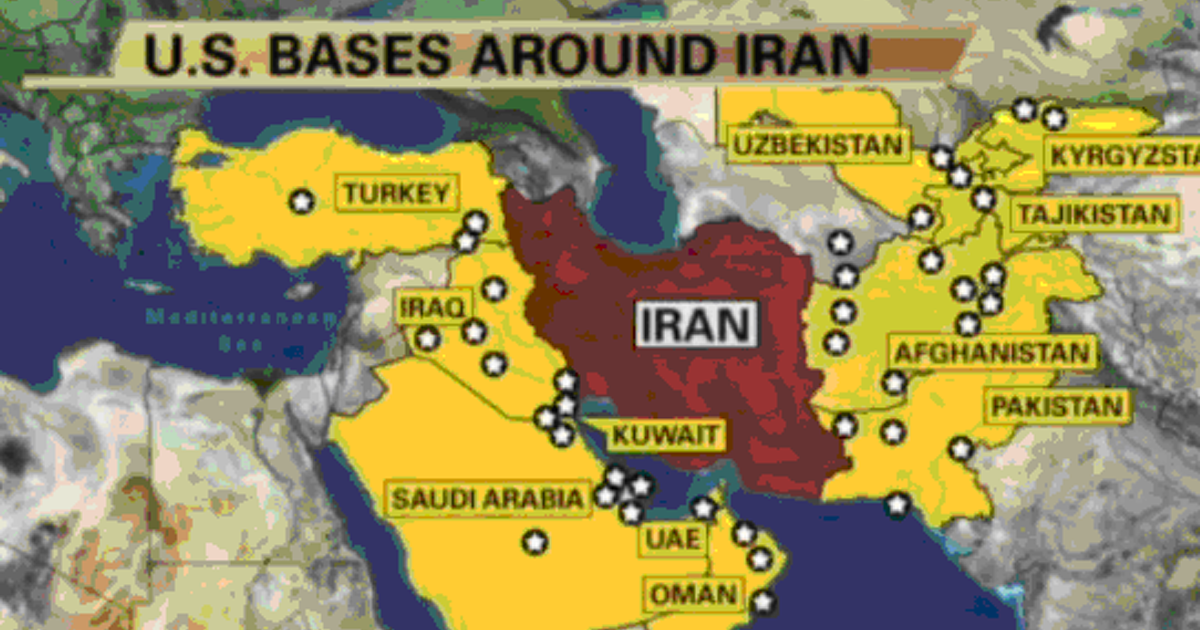
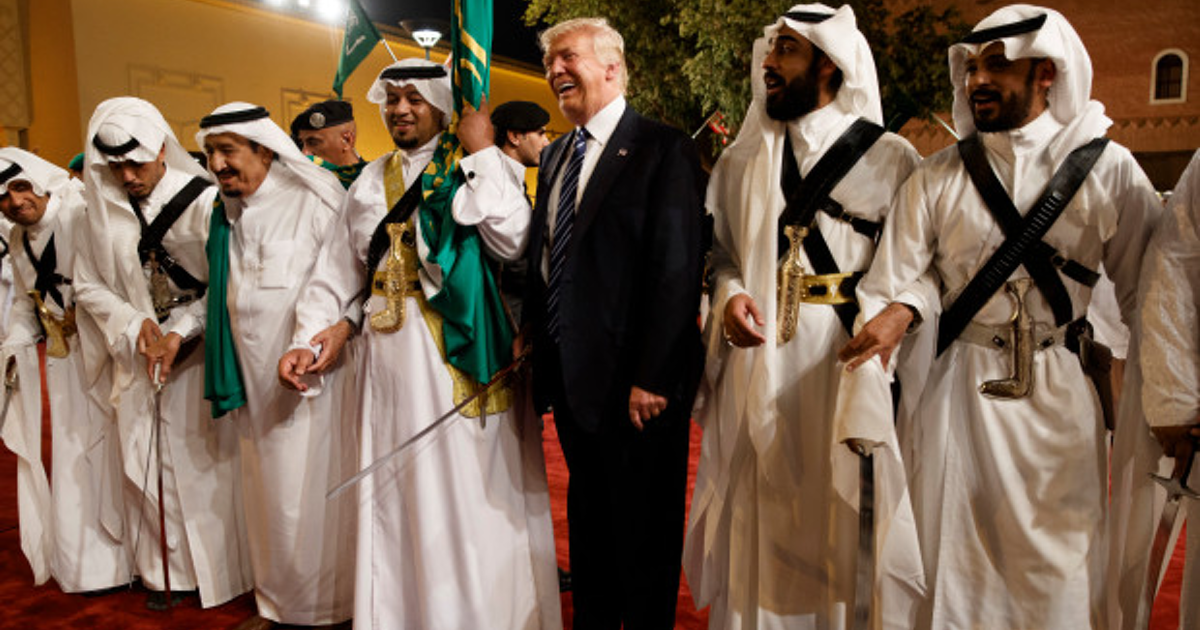
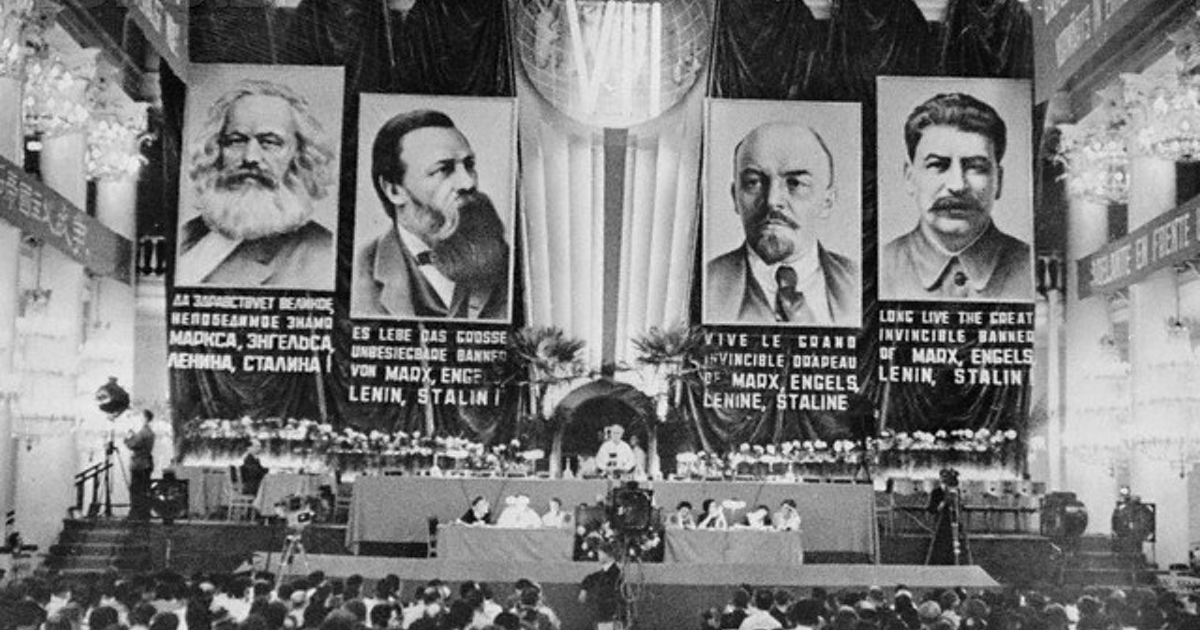
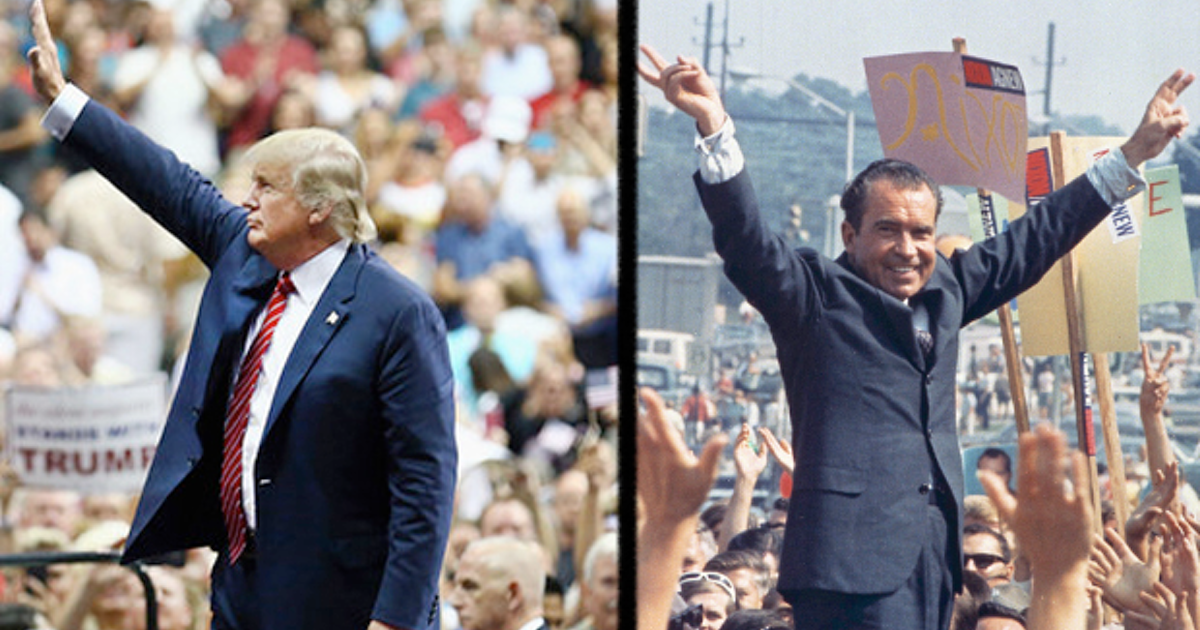
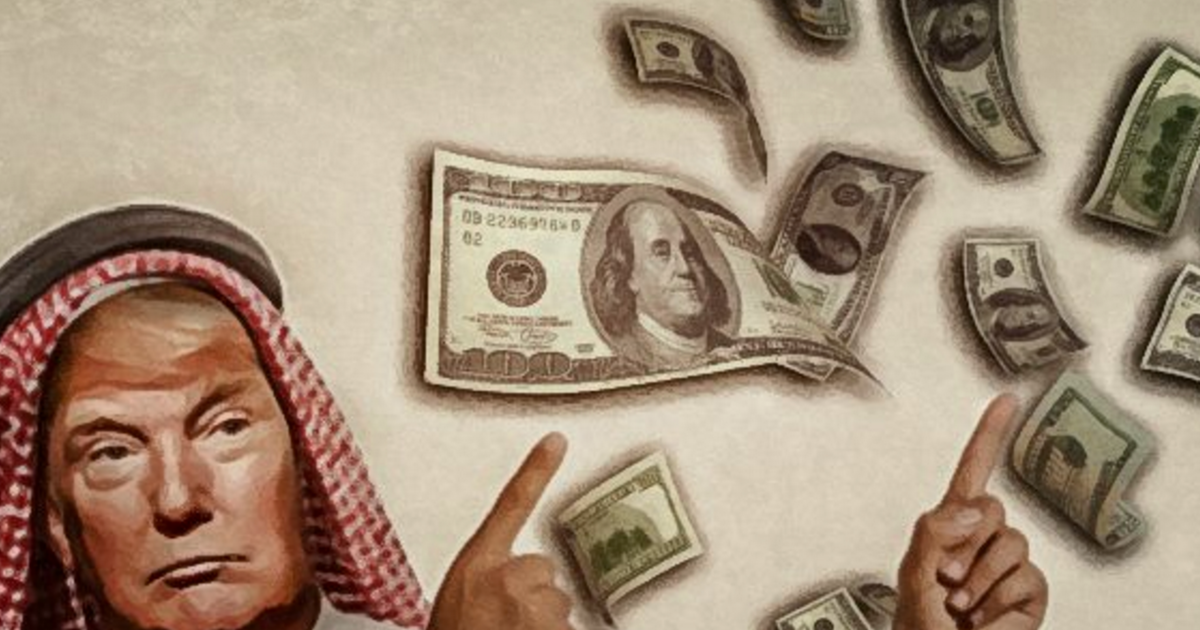
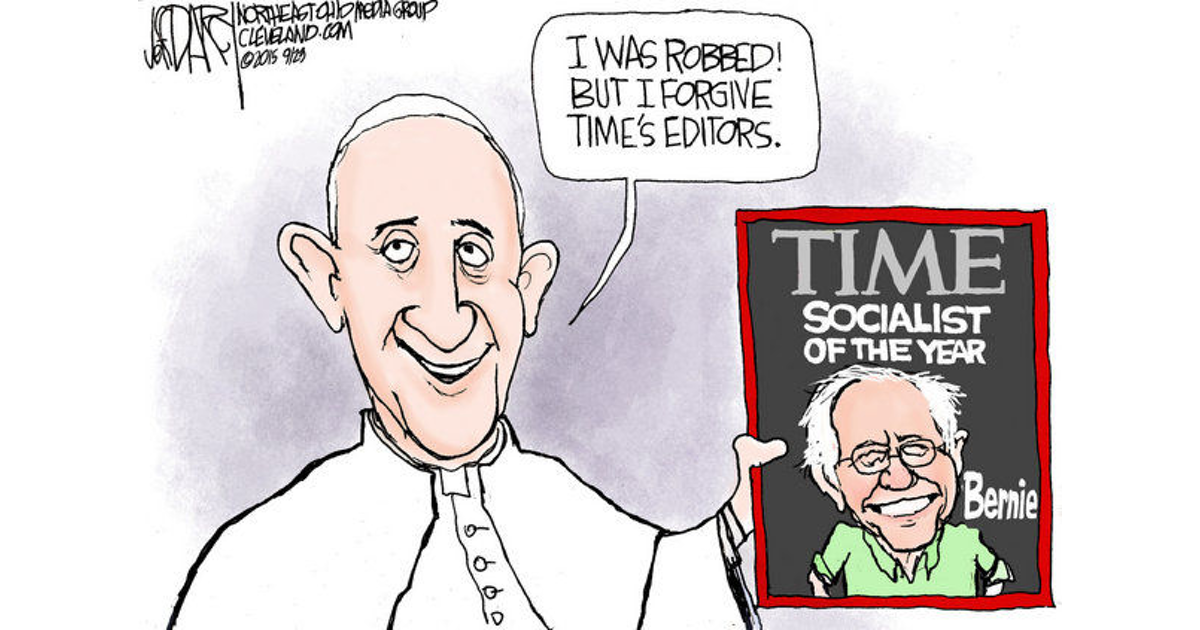
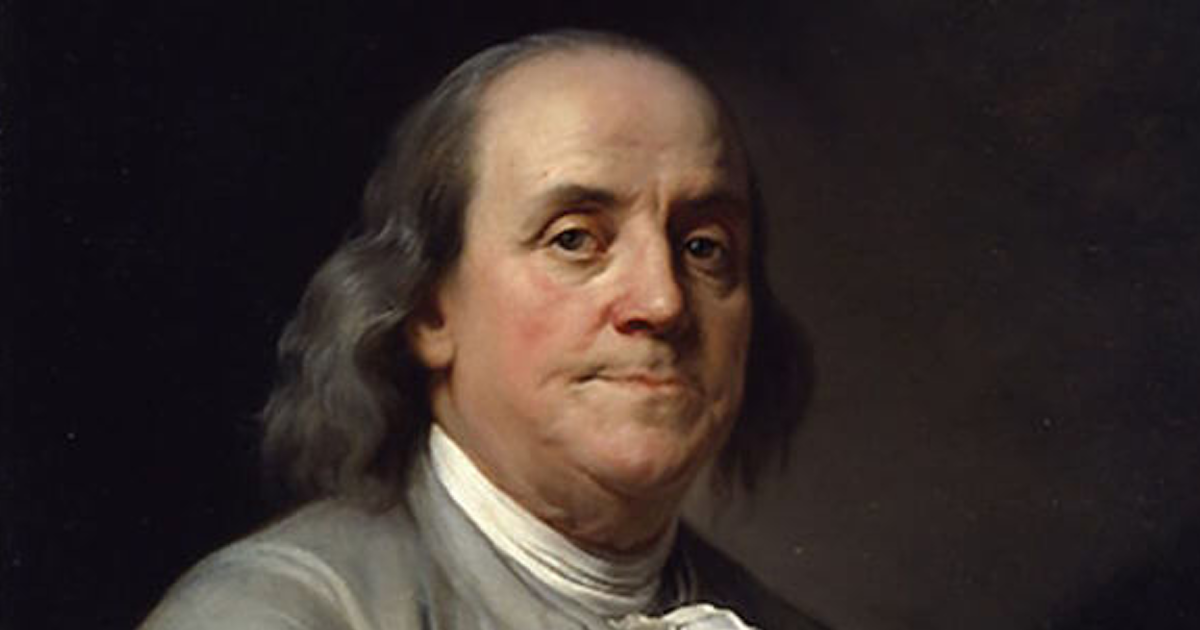

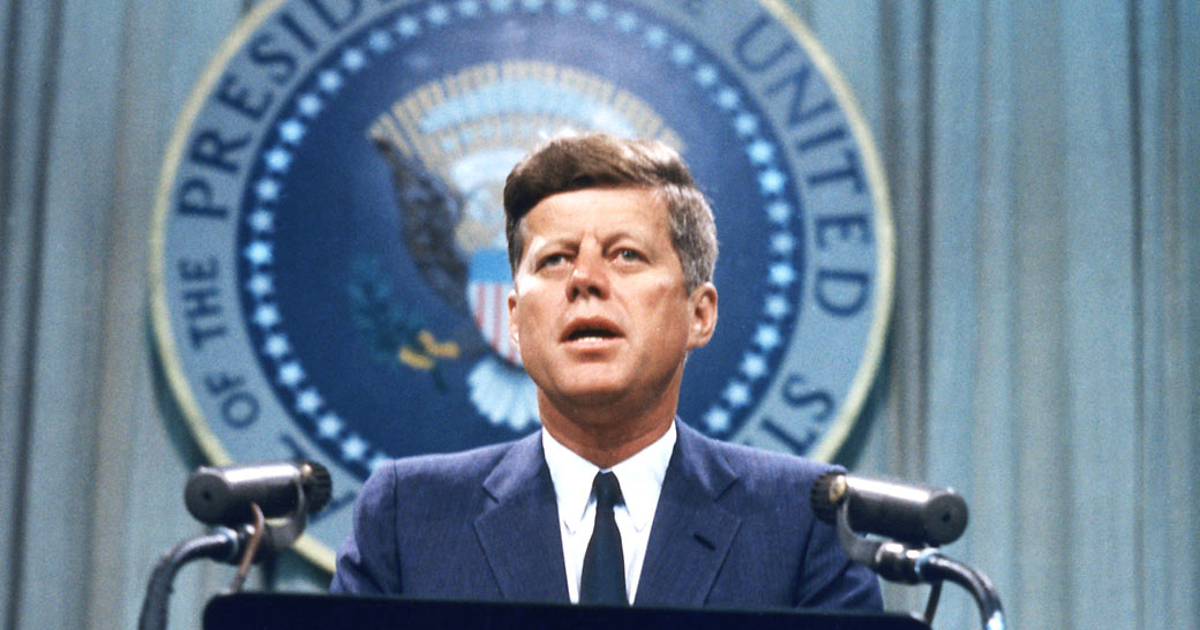
 RSS Feed
RSS Feed



